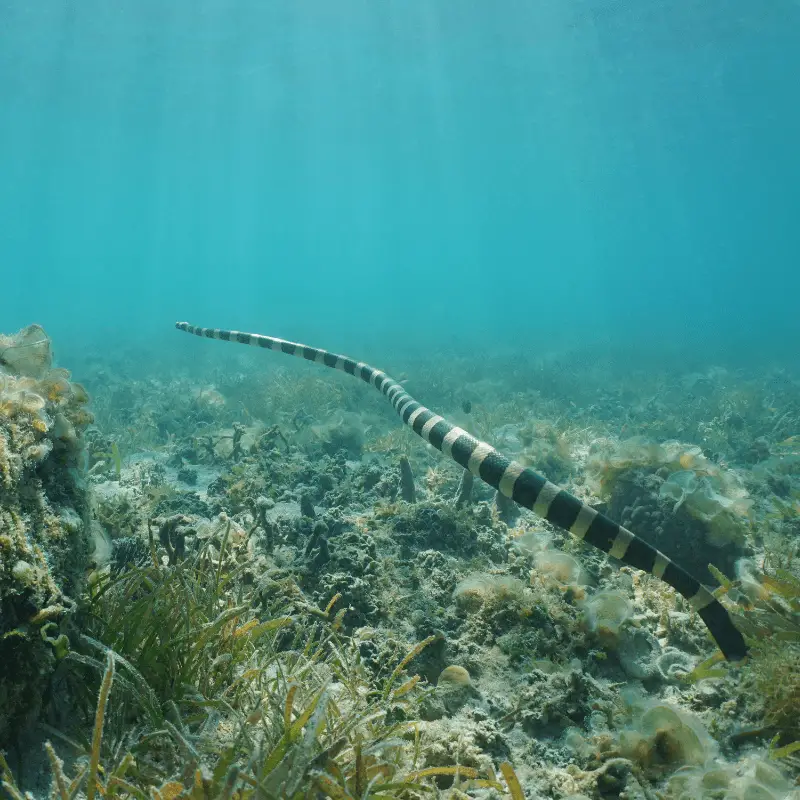If you came face to face with a snake underwater, would you confront a snake? Most probably, you would not. You would quickly swim away. As about 90% of the snakes live on the land, we rarely imagine them underwater. However, it is a misconception that most of us have.
Snakes are one of the most proficient swimmers. You can often find them swimming comfortably in the rivers, lakes and ponds. Some species of snakes are entirely aquatic. They spend most of their lives in the water.
Yes, snakes can bite underwater. However, snakes are not violent creatures. They do not bite humans if they do not feel threatened. Most of the land snakes feel somewhat vulnerable while swimming in the water. So, they try to avoid confrontation as much as possible. But if they feel threatened by you, they will not hesitate to bite.
Will a snake drown if it bites underwater?
There is a rumour that the snakes drown if they bite underwater. It is nothing but a myth. Snakes can hold their breath for a considerable time when they are underwater, and if they feel threatened during that time, they will bite without a second thought and survive.
In a study published in the Journal of Medicine and hygiene, fishers chose 100 sea snake bite patients who have visited the local hospital. The researchers noted that 80% of those patients were fishing in the water during the incident. Most of them have snake bites on their lower limbs.
From that, researchers concluded that Snakes bit them only after stepping on them in the water. According to the researcher, it is always better to leave the snakes alone if you confront them on land or in the water snakes will most certainly bite.
Can snakes swim?
Yes all snakes are good swimmers. Even the terrestrial species can go to the rivers or lakes for a swim. Most of the time, the snakes go to the water to escape predators, have a drink or hunt the water-dwelling prey. Snakes also enjoy the feel of water during the hot summer days. They often take a swim when they are hot. The water loosens the old skin and makes the shedding process more manageable.
However, most of the snakes like to swim on the surface of the water. Water snakes live their entire lives in water bodies. The sea snakes, on the other hand, permanently live underwater. They only come up to the surface for breathing. Snakes love to stay in the marshy areas and swamps. So, it is better to take some precautions before going inside one.
Types of snakes that are common to find in the water
All snakes can swim and come inside the water bodies for various reasons if accessible. However, some specific snakes live in the water. These snakes have evolved in such a way that they spend most of their lives in water.
Sea Snakes
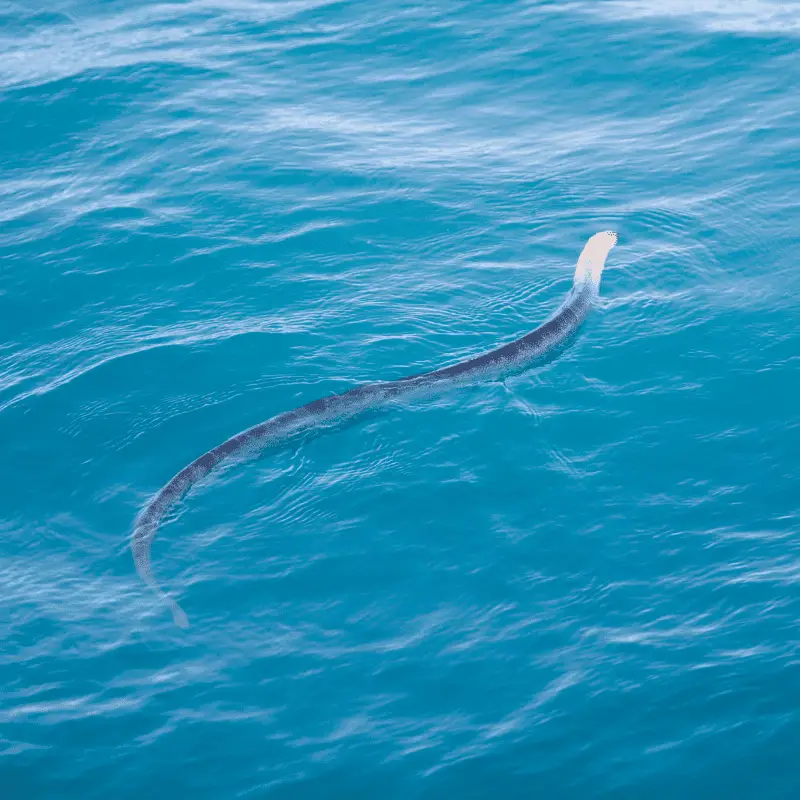
These snakes are venomous and live in the pacific and Indian ocean. These snakes and the cobras belong to the same family. Even though these snakes are entirely aquatic, they love to live in shallow water.
That is why it is one of the most common sea snakes that people encounter.
Some of the sea snakes, like the sea kraits, can also move on the land if required. Sea snakes can bite underwater, and they are incredibly venomous. One drop of sea snake venom can kill about three adult men.
But, most sea snakes are non-aggressive. Unless they are provoked or feel extremely threatened, they rarely bite humans. Even when they do, most of the time, their bites are dry without any venom.
Cottonmouths
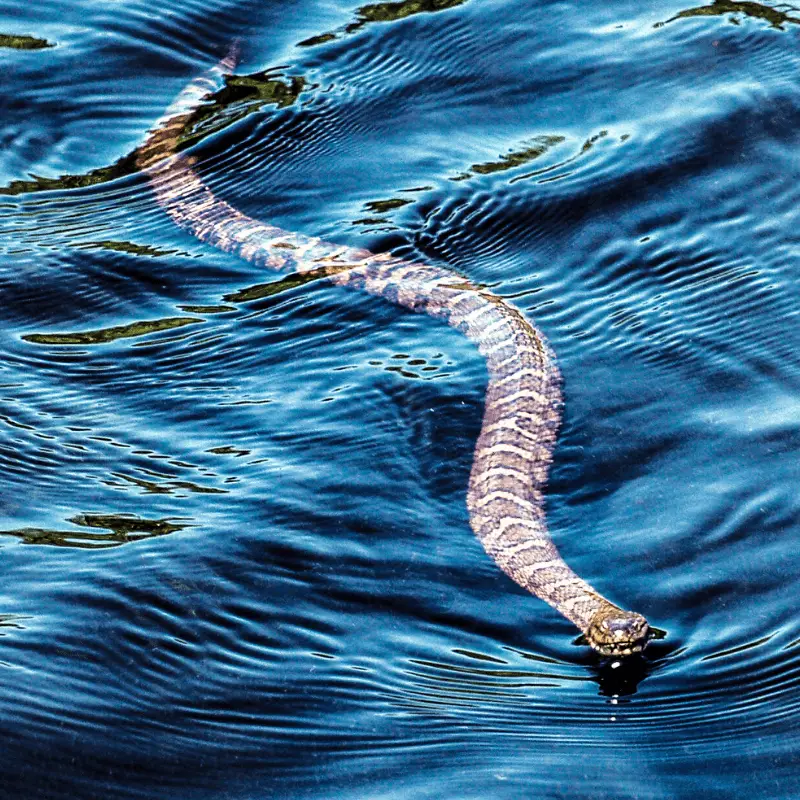
Also known as water moccasins, these snakes can be found in the water very often. These snakes love to live in swamps and other wet areas. Being vipers, water mocassins are venomous. Their bite can lead to swelling and tissue damage. But most of the time, the bites of the water moccasins do not result in deaths.
Copperheads
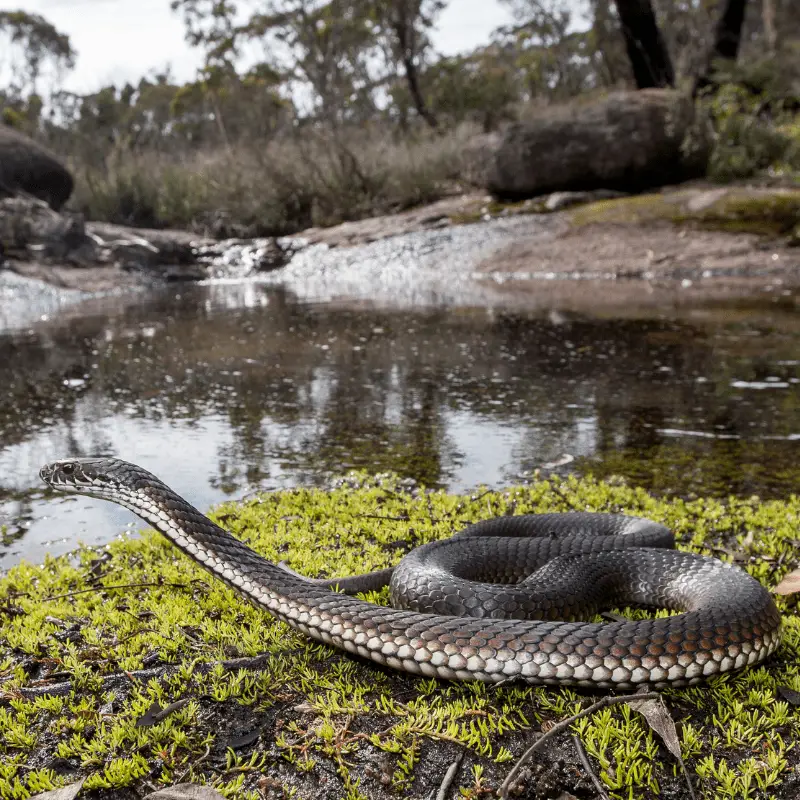
The copperheads can be found near the swamps, streams and ponds. These snakes are mildly venomous, and their bites are seldom fatal.
Rattlesnakes
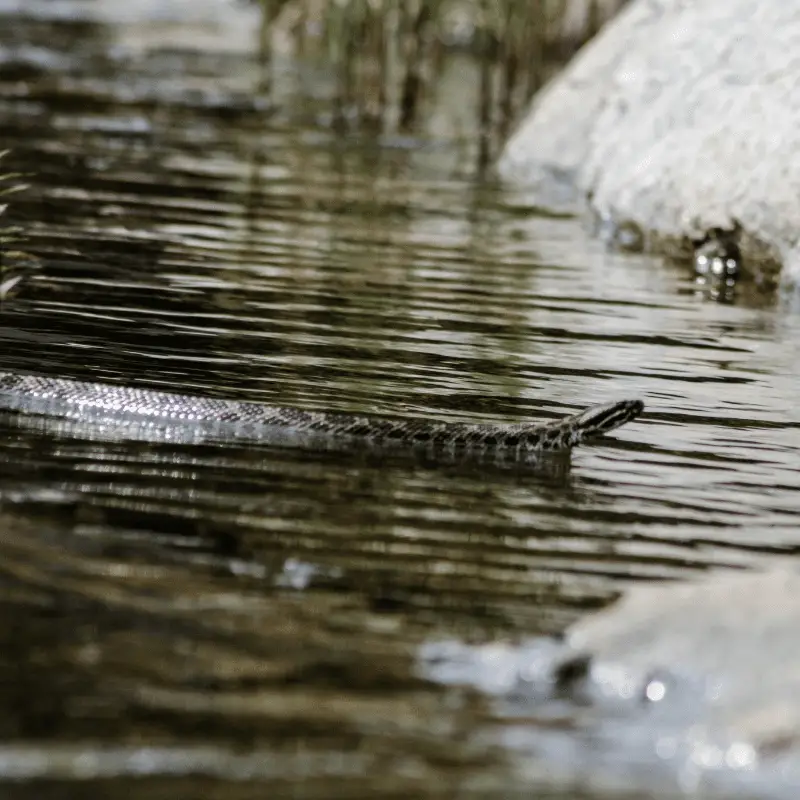
Thanks to their unique rattling sounds, the rattlesnakes can be identified quite easily. Their rattling sound also alerts people and helps them to avoid confronting these snakes. Even though these snakes have a bad reputation, they are not aggressive towards humans. If humans are nearby, the rattlesnakes prefer to retreat or warn them about the threat. Saying that the rattlesnakes’ bites can be severe, and if the snake gets cornered, it will bite.
How to prevent underwater snake bites?
Most of the sea and water snakes do not consider humans as their prey. So, they will not be inclined to chase you or bite you in any way. The only way a snake will bite you in the water is if it feels that you are a threat to it.
A study conducted by the researchers showed that the water moccasins only bite when they are stepped on or picked up. Contrary to the common belief, most of the snakes try to escape when confronted by a human. Only 36% of the snakes deliver a bite, even though most of them are dry.
What to do if you see a snake in the water?
You should not panic. Most of the water snakes are not poisonous, and even the venomous ones are not that aggressive. Panicking will create a commotion in the water, which may make the snake feel threatened.
Stop and look
Instead of panicking, stop for a moment and see where the snake is going. The chances are, the snake has already felt your presence and is retreating to a safe place. Once you know where the snake is going, you can slowly and calmly move in the other direction.
Keep your hands to yourself
Some snakes are good at camouflaging. At a glance, these snakes may look like floating dead wood on the water. Do not get fooled by these sights. Instead, keep your hands to yourself and not touch anything until you have taken a good look.
Conclusion
It is better not to provoke a snake if you confront it in water. Do not try to pick it up or make sudden movements. Instead, back away from the snake calmly. If the snake is on your property, you can call the pest control professionals or the forest officials, and they will move the snake away.

